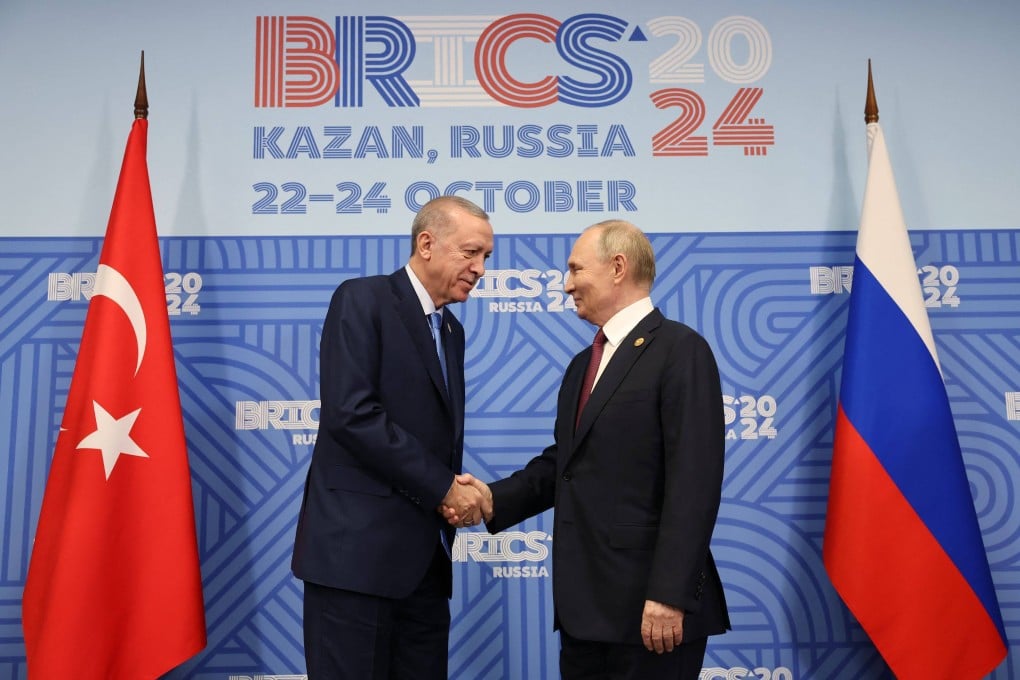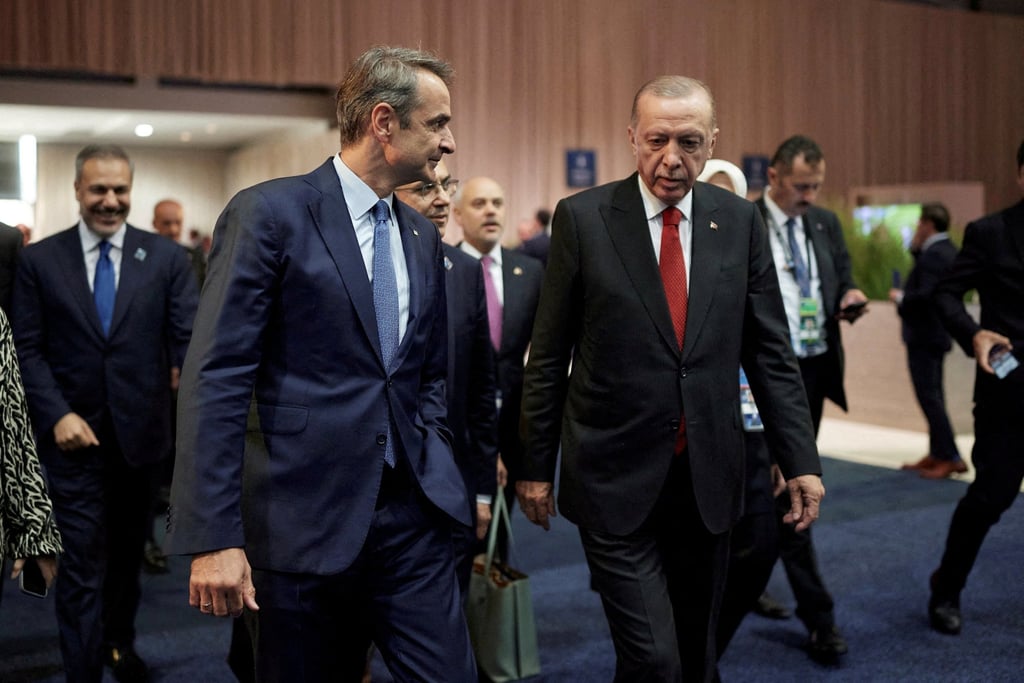Opinion | Turkey’s Brics bid reflects its desire to a forge path between East and West
Ankara’s decision could be a strategy to strengthen relations with non-Western powers, but it’s also about chasing more trade

Ankara’s decision could be a strategy to strengthen relations with non-Western powers as the global economy’s centre continues to shift away from the West, but it is also about chasing more trade with Brics members.
Announced ahead of the Brics summit that opened on Tuesday, Turkey’s application has raised questions about the broader implications for its role within Nato. If accepted, Turkey would be the first Nato member of Brics. However, this is not to say that Turkey is entirely turning away from the West. Turkey’s institutional ties with the Western world run deep. At most, this move signals the intention of Turkey’s President Recep Tayyip Erdogan to increase the government’s flexibility in its foreign relations.
Erdogan said on September 1 that this move showed Ankara’s aims to cultivate ties with all sides simultaneously to “become a strong, prosperous, prestigious and effective country if it improves its relations with the East and the West simultaneously”.


